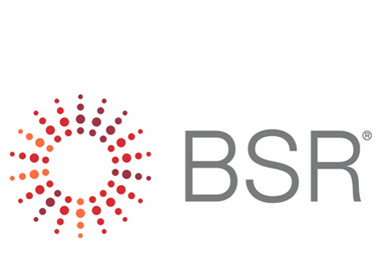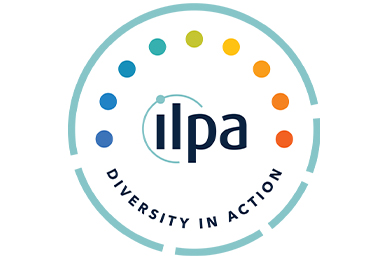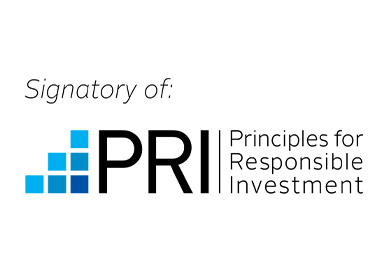Our FirmResponsible Investing
Responsible Investing
Berkshire Partners’ Responsible Investment Policy supports our mission to build enduring value through exceptional teams and aligns with our core value of winning the right way by creating lasting partnerships; fostering diverse perspectives; acting with the highest standards of integrity, honesty, and fairness; and considering the impact of our work on stakeholders. We recognize the importance of responsible investing as part of our mission to build enduring, sustainable value and to mitigate material risks for our investors and the companies in which we invest. We believe the consideration of material risks and opportunities, including on responsible investment issues, supports value creation and helps drive long-term success for our firm and our key stakeholders.
Our Responsible Investment Policy applies to all investments in which Berkshire Partners Private Equity and/or Stockbridge would have influence through ownership and/or governance rights. In situations where we have limited ability to assess or monitor factors related to our Responsible Investment Policy, Berkshire Partners endeavors to identify and elevate material concerns to management and/or the board of directors.
Our approach to RI is underpinned by five main principles:
- Seek investment in companies that can consistently operate in accordance with high standards of professional integrity and business ethics.
- Promote effective governance standards.
- Evaluate and address climate impacts, and other environmental impacts as relevant.
- Support initiatives aimed at advancing inclusion, workforce engagement, and well-being as a business imperative.
- Respect internationally recognized human rights principles.
Climate Strategy and Net Zero Commitment
Berkshire Partners Private Equity intends to lower the carbon intensity of its investments in pursuit of net zero greenhouse gas emissions across its portfolio by 2050 to help limit global temperature rise.
For its future funds, Berkshire Partners intends to empower companies over which it has effective control to set decarbonization targets by the end of 2027, and within two years of Berkshire’s investment for companies acquired after 2025.*
Pursuing these targets is intended to help limit global temperature rise in line with the Paris Agreement, or similarly robust international climate agreements and goals that may replace it and enable net zero greenhouse gas (GHG) emissions by 2050 or sooner across our in-scope investments. We will encourage our private equity portfolio companies to set decarbonization targets for their Scope 1 and Scope 2 emissions and also adopt meaningful plans to measure, track, and reduce their Scope 3 emissions**. We will seek to engage with companies over which we do not have effective control to advocate for a similar approach and share across our portfolio emissions-reduction resources and best practices.
Carbon offsets to neutralize residual emissions will be considered only after all feasible steps have been taken to reach net zero.
Berkshire Partners is a member of the following organizations:
- Business for Social Responsibility (BSR): A global non-profit organization that works with its network of more than 250 member companies and other partners to build a just and sustainable world.
- Institutional Limited Partners Association (ILPA) Diversity in Action Initiative: An association that brings together limited partners and general partners who share a commitment to advancing diversity, equity, and inclusion in the private equity industry.
- Ownership Works: A nonprofit organization that partners with companies and investors to provide all employees with the opportunity to build wealth at work.
- Principles for Responsible Investing (PRI): PRI is a leading global network for investors committed to integrating environmental, social and governance (ESG) considerations into their investment practices and ownership policies.
- Seizing Every Opportunity (SEO): The SEO Alternative Investments Fellowship Program educates, mentors, and provides access to traditionally underrepresented groups in the alternative investments industry.





Culture and Engagement
Cornerstones of exceptional teams include inviting a range of perspectives, acting with the highest standards of fairness, and creating an inclusive culture.
At Berkshire Partners we believe in long-term relationships built on trust, teams that tap the full potential of every individual, and winning in a way that makes us proud.
We celebrate individual differences in background, experience, and perspective.
Diversity is created by a broad spectrum of human differences, and each person has a unique background, experience, and perspective based on a variety of social identities. We believe that diversity helps us attract top talent, fosters innovation, and drives success.
We commit to treating all employees with fairness.
Investing is a people business grounded in culture and teamwork. All employees should have fair access to opportunity. We commit to a level playing field and to ensuring that everyone has a fair opportunity.
We value individual differences and are dedicated to building and enhancing an actively inclusive culture.
We know that a culture of inclusion is essential to building exceptional teams. An inclusive culture supports all employees, welcomes individual differences, and encourages active participation from everyone. A culture of belonging is one where every employee feels like a valued member of the team and has a sense of connection and community with colleagues.We believe that inclusion and belonging foster collaboration, promote innovation, and support individual and team growth. We strive to build a culture that reflects our purpose and values and rely on every team member to contribute to that effort.
*Any ESG or impact, targets, programs, commitments, incentives, initiatives, or benefits referenced in any information, reporting or disclosures published by Berkshire Partners are not being promoted to investors and do not bind any investment decisions or the management or stewardship of any funds managed or advised by Berkshire Partners for the purposes of Regulation (EU) 2019/2088 on sustainability-related disclosures in the financial services sector unless otherwise specified in relevant fund documentation or regulatory disclosures. Applying ESG factors to investment decisions is qualitative and subjective by nature. There are also significant differences in interpretations of what positive ESG characteristics mean by region, industry and topic. Berkshire Partners’ interpretations and decisions are expected to differ from others’ views and could also evolve over time. In addition, in evaluating an investment, Berkshire Partners expects to depend upon information and data provided by a number of sources, including the relevant investments and/or various reporting sources which could be incomplete, inaccurate or unavailable, and which could cause Berkshire Partners to incorrectly assess a company’s ESG practices and/or related risks and opportunities. Berkshire Partners does not intend to independently verify all ESG information reported by investments or third parties.
**Scope 1: Encompasses all direct emissions that result from a company’s operations. These include emissions under a company’s control such as onsite fuel combustion, company-owned vehicles, and in-house processing equipment.
**Scope 2: All indirect greenhouse gas emissions that result from purchased and consumed electricity, heat, steam, or cooling.
**Scope 3: Represents all other indirect emissions from value chain activities. These emissions occur from a company’s operations but are produced from sources neither owned nor controlled by the company. Examples include emissions generated by suppliers, employee commute and business travel, and landfill waste disposal.
Source: Schneider Electric
Please see our most recent Responsible Investment Report for information, if any, regarding Berkshire Partners’ climate initiatives and related methodology disclosed pursuant to Section 44475.2 of Division 26 of the California Health and Safety Code (AB 1305). Unless otherwise stated, any such information has not been independently verified by a third-party. Please see our most recent Responsible Investment Report for information, if any, regarding Berkshire Partners’ climate initiatives and related methodology disclosed pursuant to Section 44475.2 of Division 26 of the California Health and Safety Code (AB 1305). Unless otherwise stated, any such information has not been independently verified by a third-party.